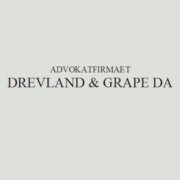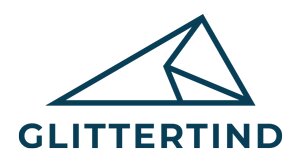Best Real Estate Due Diligence Lawyers in Norway
Share your needs with us, get contacted by law firms.
Free. Takes 2 min.
Free Guide to Hiring a Real Estate Lawyer
Or refine your search by selecting a city:
List of the best lawyers in Norway
About Real Estate Due Diligence Law in Norway
Real estate due diligence in Norway is a critical step in the property transaction process, ensuring that parties involved are fully informed about the legal and physical aspects of the property before finalizing a deal. This comprehensive review includes examining property titles, zoning laws, structural conditions, and compliance with local regulations. Norway’s real estate market is characterized by its transparency and efficiency, but due diligence remains vital to uncover potential risks and liabilities, thus safeguarding investments and financial interests.
Why You May Need a Lawyer
Engaging a lawyer during the real estate due diligence process can be invaluable for several reasons. Firstly, lawyers can provide interpretation and clarification of complex legal documents and local regulations. Secondly, they safeguard your interests by identifying any potential legal issues such as easements, liens, or zoning restrictions that might not be immediately obvious. Additionally, lawyers can assist in negotiating terms and ensuring that agreements comply with Norwegian laws, especially in cross-border transactions. Lastly, they can provide guidance on tax implications and help ensure that the transaction is completed smoothly and legally.
Local Laws Overview
Several key local laws and regulations impact real estate due diligence in Norway. The main legal instrument is the Norwegian Property Rights Registry Act, which mandates that all property ownership and encumbrances be registered in the public registry. The Planning and Building Act governs land use and development, detailing zoning regulations and building requirements. Environmental regulations also play a crucial role, particularly in assessing contamination and ensuring compliance with sustainability standards. The Alienation Act regulates the transfer of real estate, outlining the rights and duties of buyers and sellers. Familiarity with these laws is essential for conducting thorough due diligence.
Frequently Asked Questions
1. What is involved in due diligence for real estate in Norway?
Due diligence typically includes reviewing property titles, analyzing zoning laws, verifying building permits, inspecting the physical condition of the property, and ensuring environmental compliance.
2. How long does the due diligence process usually take?
The duration can vary depending on the property type and complexity, but it generally takes a few weeks to a few months to complete a comprehensive due diligence process.
3. Can I conduct due diligence on my own?
While it's possible to conduct due diligence independently, hiring a lawyer is often recommended to ensure all legal aspects are thoroughly examined.
4. What are some common issues uncovered during due diligence?
Common issues include undisclosed liens, zoning violations, structural defects, and incomplete permits.
5. Is a home inspection part of due diligence?
Yes, a home inspection is a crucial component of the due diligence process, assessing the property's condition and identifying any necessary repairs or renovations.
6. What should I do if issues are found during due diligence?
If issues are found, you can negotiate with the seller for repairs or a price reduction, or you may choose to withdraw from the transaction.
7. Are there any specific environmental considerations in Norway?
Yes, properties must comply with Norwegian environmental laws, including checks for contamination and adherence to sustainability practices.
8. How does Norwegian law protect buyers in real estate transactions?
Norwegian law mandates full disclosure of all relevant information about the property to protect buyers from unforeseen issues.
9. What is the role of a real estate agent in the due diligence process?
A real estate agent facilitates the transaction, provides market insights, and can assist with preliminary property evaluations, but full due diligence is typically beyond their scope.
10. Do I need to validate property ownership during due diligence?
Yes, verifying property ownership and checking for any encumbrances or liens is a fundamental part of due diligence.
Additional Resources
Several organizations and resources can assist with real estate due diligence in Norway. The Norwegian Land Registry (Kartverket) provides essential information on property rights and land use. The Norwegian Mapping Authority offers digital maps and geographic information. Consulting the Norwegian Centre for Expertise might be beneficial for complex transactions, especially those involving commercial properties.
Next Steps
If you require legal assistance with real estate due diligence in Norway, consider contacting a lawyer specializing in real estate law to guide you through the process. Start by gathering all necessary property documents and information, and prepare a list of questions or concerns you may have. Once you've chosen a legal representative, schedule a consultation to discuss your specific due diligence needs and outline a strategy to address all legal and regulatory requirements. Engaging professional legal services can help ensure a smooth real estate transaction with minimized risks.
Lawzana helps you find the best lawyers and law firms in Norway through a curated and pre-screened list of qualified legal professionals. Our platform offers rankings and detailed profiles of attorneys and law firms, allowing you to compare based on practice areas, including Real Estate Due Diligence, experience, and client feedback.
Each profile includes a description of the firm's areas of practice, client reviews, team members and partners, year of establishment, spoken languages, office locations, contact information, social media presence, and any published articles or resources. Most firms on our platform speak English and are experienced in both local and international legal matters.
Get a quote from top-rated law firms in Norway — quickly, securely, and without unnecessary hassle.
Disclaimer:
The information provided on this page is for general informational purposes only and does not constitute legal advice. While we strive to ensure the accuracy and relevance of the content, legal information may change over time, and interpretations of the law can vary. You should always consult with a qualified legal professional for advice specific to your situation.
We disclaim all liability for actions taken or not taken based on the content of this page. If you believe any information is incorrect or outdated, please contact us, and we will review and update it where appropriate.
Browse real estate due diligence law firms by city in Norway
Refine your search by selecting a city.
















